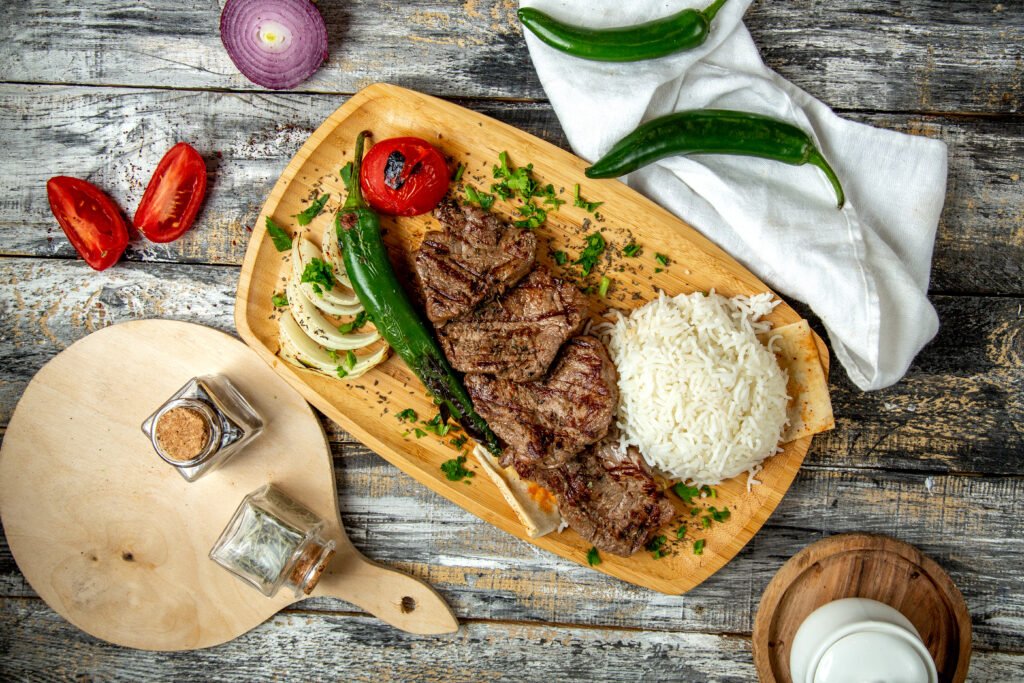The Importance of Your Post-Workout Meal

The quality of your post-workout meal determines how well your body recovers from the muscle-tearing session at the gym.
You could be working out to failure every session, each and every day, all of which would lead to no improvements—if not muscle loss—if your diet is lacking the right foods.
We have encountered numerous people who were not making any progress and were sluggish during their workout sessions. Once we dove into their lifestyle and diet, it soon became very evident why they lacked energy during workouts, as well as their lack of muscle gain.
It was primarily their diet: the lack of proper nutrition, wrong meal timings, causing fatigue during workouts and inefficiency in recovery.
In this era, with too much information on the internet, it’s easy to mislead or overwhelm yourself. That is why we released this guide to provide you with all the necessary information you need in order to fix your post-workout meal plan along with its timing.
Post-Workout Meal Timing
It is best to have your post-workout meal within 30–60 minutes of your workout (also referred to as the anabolic window). That is when your muscles are primed to absorb amino acids from protein-rich food and start repairing the torn muscle fibres immediately.
Delaying your post-workout meal can lead to your body relying on muscle protein breakdown for energy, which is not what we want.
What Does a Good Post-Workout Meal Look Like?
A good post-workout meal consists mostly of protein and carbohydrates.
Why Is Protein Necessary in a Post-Workout Meal?
After a strenuous workout session, your muscle fibres experience small tears in them, which are needed for building stronger and bigger muscles. This is when your body also seeks protein the most.
Protein is utterly essential for repairing and rebuilding the muscle fibres you tore, as well as gaining new muscle fibres.
It does that by a process called muscle protein synthesis (MPS): your body breaks the amino acids down from the sources of protein, the amino acids then enter your bloodstream, and your muscle cells use them to repair, rebuild, and create new muscle fibres.
What Happens When Your Diet Lacks Protein?
Your muscles will not recover fast enough to prepare you for your next workout.
If you continue to lift heavy while your muscles are still not repaired due to the lack of protein, you basically tear the already damaged muscles, leading to a catabolic state.
Catabolic state means that your muscle breakdown exceeds your muscle building, leading to muscle loss.
Why Do I Need Carbohydrates in a Post-Workout Meal? Isn’t Protein Enough to Repair Muscles?
Carbohydrates are essential for replenishing glycogen stores. Glycogen stores are how your body stores carbohydrates in your muscles.
During weightlifting, your body primarily uses muscle glycogen (carbohydrates stored in muscles) as a fuel source. Eating carbohydrates refuels these stores so that your body can recover fully and be optimal for the next workout.
Carbohydrates also promote insulin release, which drives nutrients into muscle cells, enhancing muscle protein synthesis.
What Happens When You Do Not Eat Sufficient Carbohydrates in a Post-Workout Meal?
Your glycogen stores do not refuel properly.
Lower glycogen reserves lead to bad workout sessions since your body does not get the energy it is supposed to.
With insufficient carbohydrates, insulin release is limited, and your body takes longer to recover.
It’s easier to get into a catabolic state, hence muscle loss.
Quantity of Protein & Carbohydrate
The quantity of your meal depends on a few factors like your body weight, your goal, and the amount of food you consume in other meals.
You could be set out to gain weight, lose weight, or maintain weight and build some muscle.
Whatever your purpose is, with the simple general rule mentioned below, you can find out the minimum amount of carbohydrates and protein your body requires for complete recovery:
General Rule for Protein: 0.4–0.5g protein per kg of body weight
General Rule for Carbohydrates: 0.8–1.2g carbohydrates per kg of body weight
Example:
If you weigh 70 kg, then you would require:
28–35g of protein
56–84g of carbohydrates
in your post-workout meal.
Check out our detailed guide on how to track food in terms of calories and macronutrients easily: (Link will be available soon)
Some Good Examples of Post-Workout Meals
Rice/Tortilla with Chicken
Rice – Source of carbohydrate required for replenishing muscle glycogen stores, releasing insulin to drive nutrients into muscle, and supporting muscle protein synthesis.
Chicken – Protein source to rebuild, repair, and build new muscle fibres through muscle protein synthesis.
Egg Sandwiches
Bread – Provides the necessary carbohydrates.
Egg – Protein source.
Greek Yogurt with Granola and Fruit
Greek Yogurt – High-protein source to aid in muscle recovery.
Granola and Fruit – Provide carbohydrates for replenishing glycogen stores and natural sugars to help stimulate insulin release.
Oats with Whey Protein and Banana
Oats – Complex carbohydrate to refuel muscle glycogen.
Whey Protein – Fast-digesting protein source for immediate muscle repair.
Banana – Simple carbs and potassium to aid recovery.
Grilled Fish with Sweet Potato
Fish – Lean source of protein and healthy fats (especially if using salmon).
Sweet Potato – Nutrient-dense complex carbohydrate to restore energy levels.
